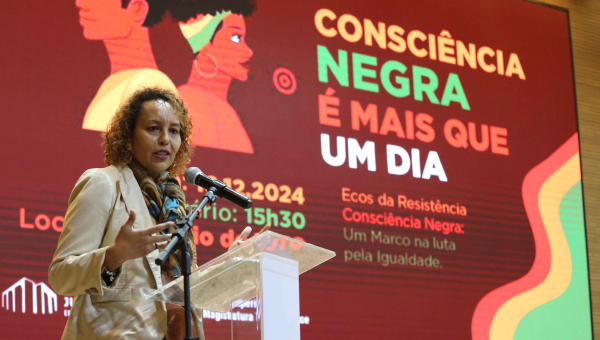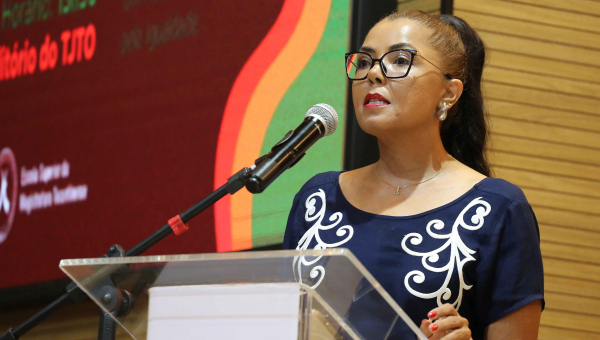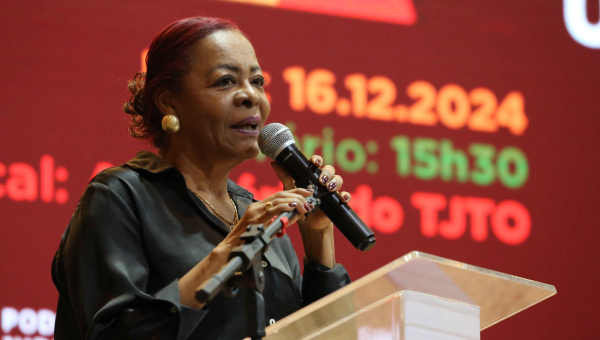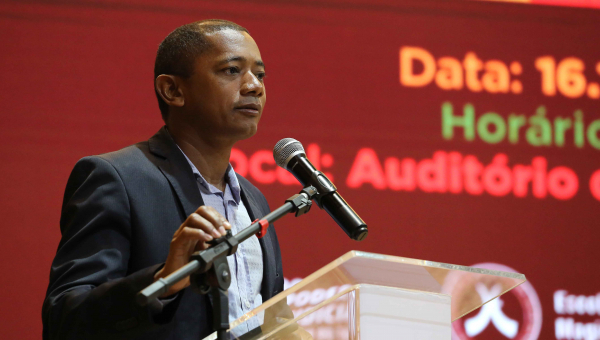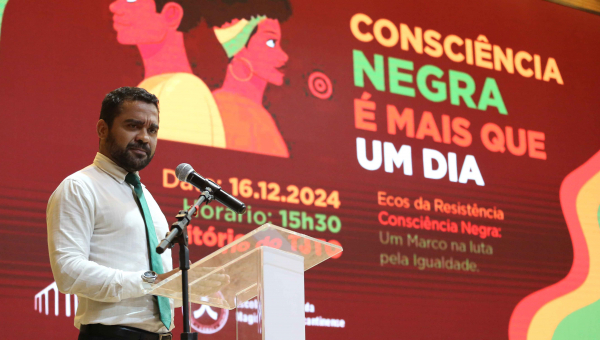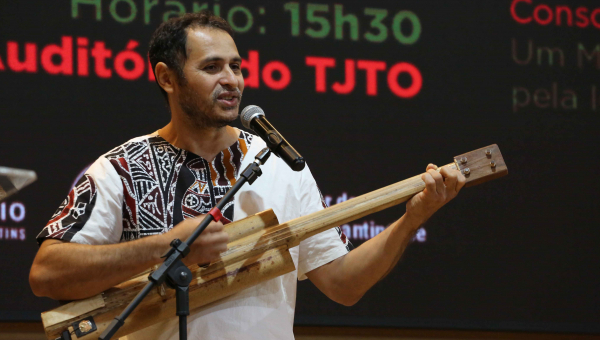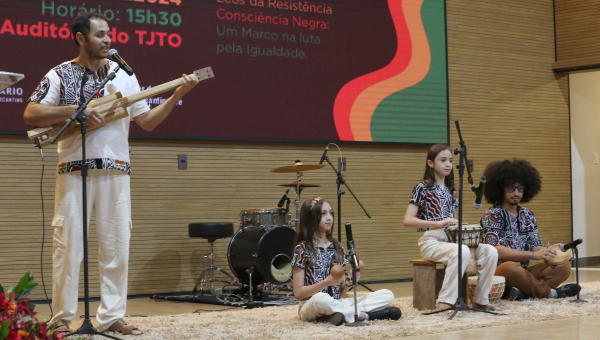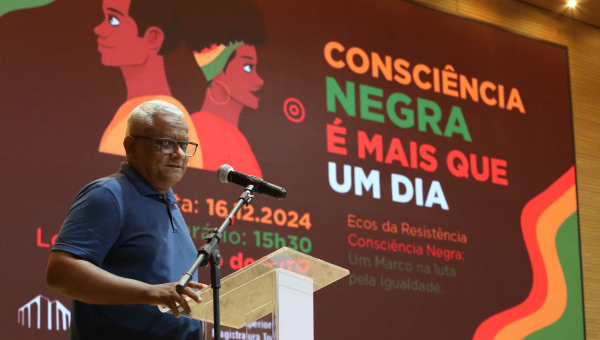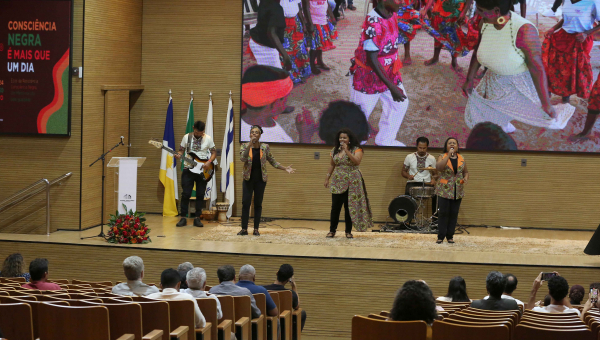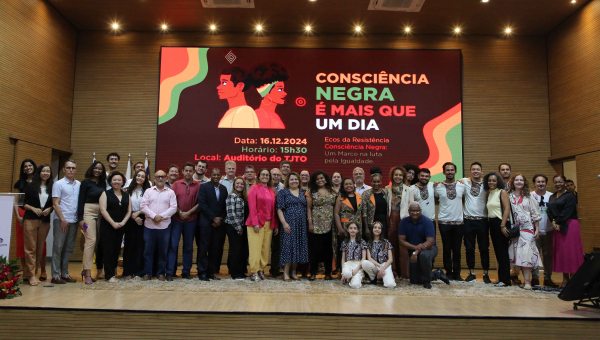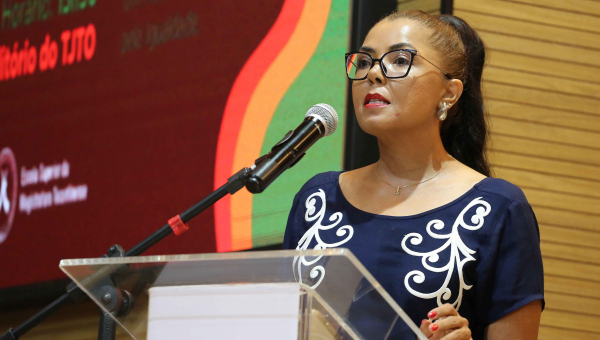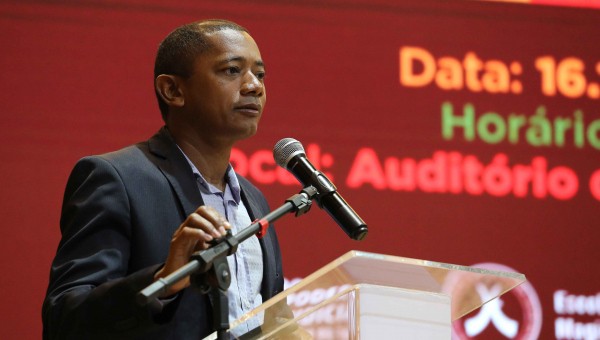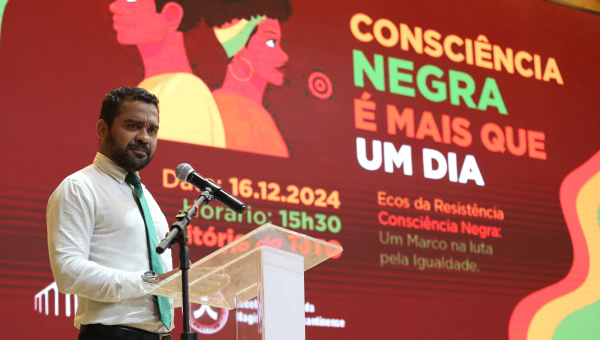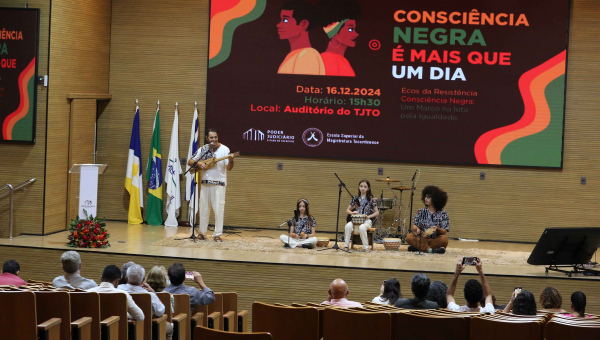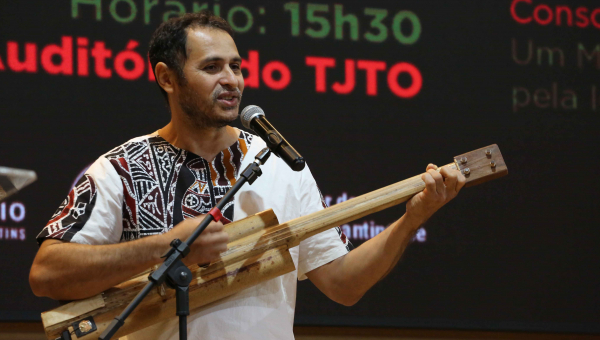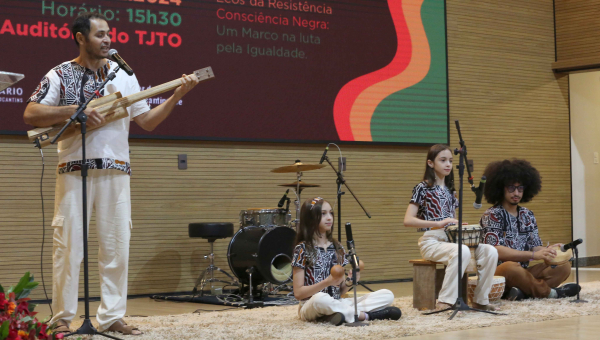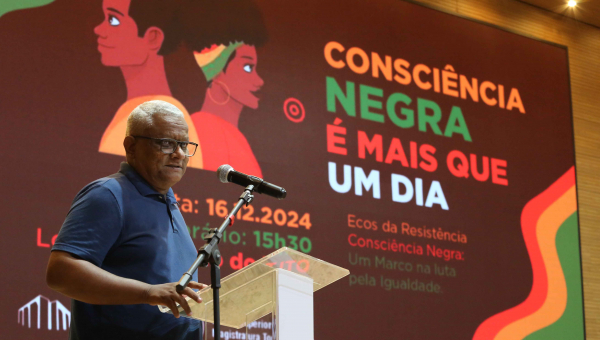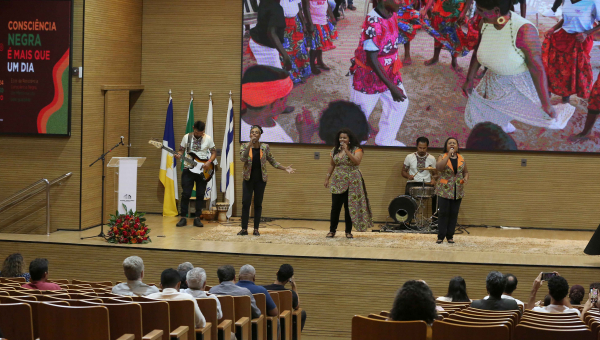
“Black Awareness is More Than One Day”. Reinforcing the importance of recognizing and celebrating the resistance and struggle of black people as a daily practice, the Court of Justice of the State of Tocantins (TJTO) held an event on Monday (December 16th) attended by magistrates and civil servers from the Judiciary of the state of Tocantins. The event was opened by the vice-President, Justice Ângela Prudente.
“Black consciousness goes beyond one day. It means understanding that the fight against racism does not end with one-off actions, but it is strengthened by the daily practice of inclusion, respect and appreciation. It means understanding that the history of black people is not just about chapters of pain and oppression, but also about a rich history of strength, resistance, vibrant culture and wisdom. We have a lot to learn, especially here in Brazil, which is a country of many races,” said the Justice, pointing out that the concept of awareness, in itself, implies constancy. “To be conscious is to be attentive, to reflect and act in a way that is consistent with what is recognized as right and fair. Therefore, black consciousness must be lived out in school hallways, in the workplace, in court decisions and in all spheres of society.”
Justice Ângela Prudente also emphasized that true equality requires concrete, persistent and committed actions. “It is therefore our duty to open doors and remove barriers. Today, the Court of Justice of the State of Tocantins is hosting and celebrating at this event this commitment to stand alongside those who are fighting for a world where merit, character and talent are the only criteria for valuing a person. Moments like this invite us to reflect. What each of us can do from our own spaces to combat prejudice and promote true equality. Power, in any sphere, must reflect the diversity of the society it serves. And building a society without racial discrimination requires not only fair laws, but also transformed and transforming hearts and minds.”
Rosa Maria Gazire Rossi, coordinator of the Manager Committee of Policy on Gender and Race Equity of the Judiciary of the State of Tocantins and assistant Judge to the President, stressed that structural racism exists in all spaces, including the Judiciary. “We are a house of justice, but we practice it even in expressions, which sometimes we don't realize, how much it denigrates, makes people unequal.”
Lectures
After the opening speeches, the Judge of the Court of Justice of the State of Piauí (TJPI), Mariana Marinho Machado, spoke about the “Representativeness of Black Women in Positions of Power”. She began by contextualizing the spaces of power occupied by women today, pointing out that statistics show that the higher the position, the lower the representation of women in spaces of power. “In our National Congress, women make up 15% of the politicians there. And when it comes to black women, we only have 2%,” she observed, recalling that when she talks about this reality in the judiciary, she is confused with her own history.
Born into a middle-class family and educated at a private school, she said she had never felt prejudice so closely until she became a magistrate. “I literally became the minority because I was totally outside the standard statistics of our Brazilian judiciary; because I'm a black woman, I joined young, I'm from the northeast, and I went against all the statistics almost 12 years ago, so I'm a magistrate. And so, when I became a Judge, I saw that racism exists, because I'm totally outside the norms and I'm in a position of power.”
The event also included a lecture on “Quality of Service from a Racial Perspective”, given by Jândria Maria Rodrigues dos Santos, a specialist in State Law and racial diversity. With over 20 years of academic and legal experience, the speaker said that everyone should be treated with respect, empathy and acceptance. “Our fight is not to victimize. Those who can see should see.”
Jândria noted that black people resist self-declaration because in reality there is a lack of viability, a lack of perception. “We are not vulnerable, we are made vulnerable.” The speaker also explained that there is individual racism and structural racism. “Individual racism is what black consciousness invites us not to let go of”. Structural racism, she said, is when it is considered that there are classes, one better and the other not, and they are all considered human races, but there is the one that “fits you and the one that doesn't”.
Finally, Jândria stressed the need to talk about racism at the dinner table, because you can't say it doesn't exist. “It's not about fighting. It's about confrontation, transforming reality with what I have in my hands.”
Racism in daily life
And in a space for debate and listening, the civil servers of the Court of Justice of the State of Tocantins - Débora Galan, Daniella Negry, Débora Maria Ferreira, Neli Veloso Miclos, Valdeir Gomes Santana and André Vinicius - took to the stage and shared situations related to prejudice, racism and mentioned that education is an instrument for changing realities.
In addition to the lectures, the event featured cultural presentations such as an art exhibition by the “Jar of Gold” (Pote de Ouro) Arts group, poetry recitations by poet Cássio Charles Borges and a musical performance by the “Ebony Voices” (Vozes do Ébano) group.




